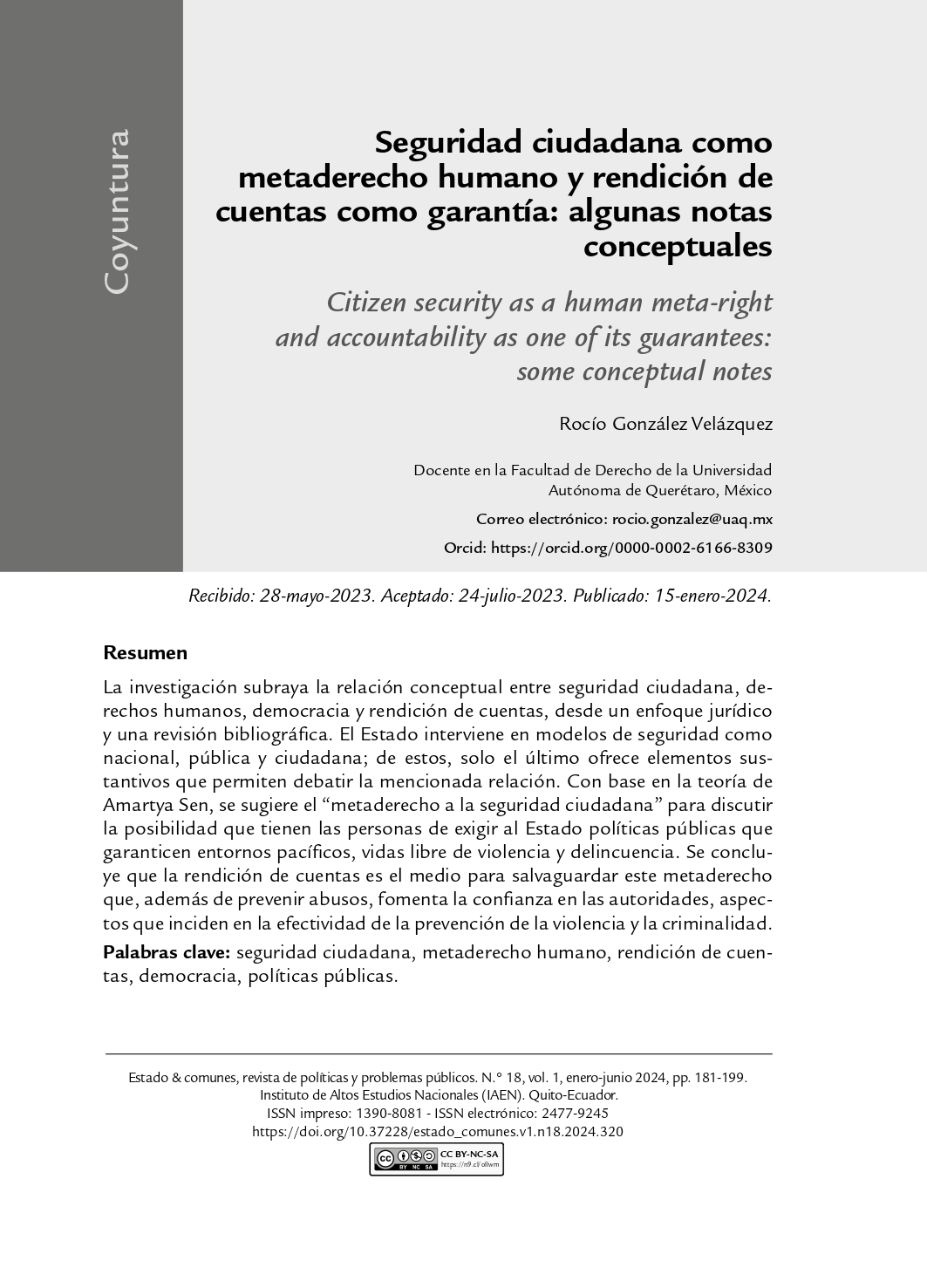Citizen security as a human meta-right and accountability as one of its guarantees: some conceptual notes
Main Article Content
Abstract
By means of a legal approach and a literature review, this research underlines the conceptual relationship between citizen security, human rights, democracy, and accountability. The state configures security standards such as national, public and citizen security; of these, only the latter offers substantive elements that shape the foundations for discussing this relationship. Based on Amartya Sen’s theory the “meta-right to citizen security”, the study assesses the prospect of people demanding from the state public policies that guarantee peaceful environments and lives free of violence and crime. The study concludes that accountability safeguards this meta-right. Moreover, this condition prevents abuses and fosters trust in the authorities, that are important because they determine the effectiveness of violence and crime prevention.
Downloads
Article Details
How to Cite
Issue
License
Copyright (c) 2024 Rocío González Velázquez
CC BY-NC-SA. This license allows sharing, copying, distributing, performing, and publicly communicating the work, as well as creating derivative works.











